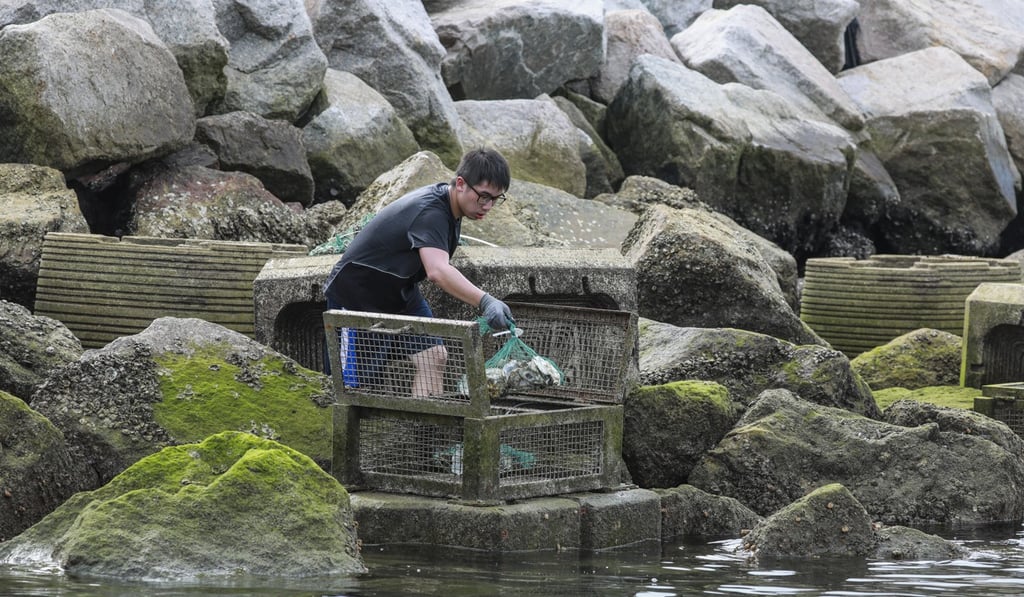Hong Kong marine ecologists lead ‘eco-shoreline’ project to reshape city’s seawalls and pave the way for future reclamation projects
- Project tests how modifying artificial shorelines boosts biodiversity – and could be template for future reclamation projects.
- Government-funded HK$5 million project to run until 2021

Under a government-funded project, experts at the University of Hong Kong and Polytechnic University are currently testing specially designed, eco-friendly concrete blocks and panels that can be attached to seawalls at three coastal locations in the New Territories.
The panels and blocks have grooves and ridges that mimic rocks eroded by weather and seawater, allowing room for organisms to hide from predators and harsh conditions.
“During midday, temperatures can be as high as above 50 degrees Celsius [on the seawall] and can cook the organisms alive and kill them,” said Kenneth Leung Mei-yee, a professor of aquatic ecology and toxicology at HKU who is leading the project.

After installation is completed in July, the HK$5 million (US$639,942) eco-shoreline project will run until mid-2021.